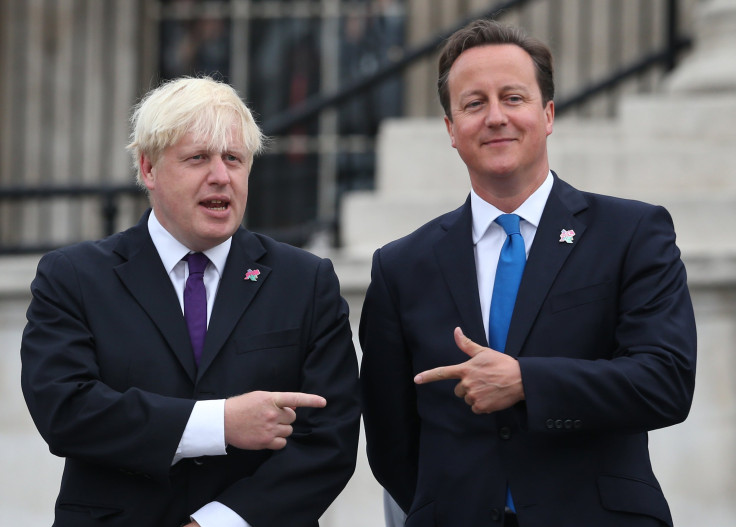Brexit: Boris Johnson Is Bookmakers’ Favorite To Succeed David Cameron

The shock result of the U.K.'s referendum has sent shockwaves through the markets, and through British politics. Prime Minister David Cameron's announcement that he will step down in October has set potential successors positioning themselves to replace him.
Former London mayor and current Conservative MP Boris Johnson is the bookmakers' favorite for the job, with odds of 8/11. The eccentric politician has one of the highest profiles in British politics, and was the leading figure in the "leave" campaign, and some commentators have noted that he used the referendum campaign to enlarge his fan base.
Johnson's role in the "leave" campaign, however, may hurt his chances if, as prime minister, he faces the wider electorate, rather than just the Conservative party. He was booed by members of the public as he left his London home Friday morning after the results of the referendum became clear. He declined to speculate on his future.
Johnson is not the only contender for the post. Theresa May, the home secretary, is viewed by bookmakers as the second-most likely candidate for the job, with odds of 9/4. May's status, however, as a prominent "remain" campaigner may damage her chances – with experts suggesting that a politician who campaigned against a Brexit would be unlikely to win support in the party to lead negotiations with Europe on Britain's EU departure.
Her failure to keep a key election promise – that as home secretary she would bring net migration to the U.K. under 100,000 a year has also likely damaged her with the party, especially after immigration appears to have trumped the economy as a concern for British voters in the Brexit poll.
Another prominent "leave" campaigner, education secretary Michael Gove, is seen as a contender – with bookmakers putting him in third place with odds of 5/1 on succeeding Cameron as prime minister. Polls conducted by the British website ConservativeHome have seen Gove move into the lead in recent months, before the Brexit vote.
Gove, however, has repeatedly stated that he does not want the job. Though as the classic British political satire “Yes, Prime Minister” points out – denying your ambitions for the highest office in British politics is a tactic often employed by those seeking it.
Bookmakers' odds, however, have not proved particularly insightful in the Brexit debate thus far. Bookmakers placed the chances that voters would reject calls to leave the EU at around 90 percent.
The process of being elected leader of the ruling Conservative party, and thus prime minister, is a complex one. Candidates must be nominated by two sitting Conservative MPs, and if only one is selected they win outright. If more than one is selected, the decision is put to ordinary party members in a postal ballot.
Cameron and the Conservatives took victory in last year's general election, so his successor could serve the remainder of his five-year term before calling an election.
Political commentators in the U.K. are suggesting, however, that Cameron's successor may call an early general election, to secure a fresh mandate. Many have cited the example of former Labour Prime Minister Gordon Brown, who took office without an election after his predecessor, Tony Blair, resigned. Brown was defeated when he led the party into a general election.
© Copyright IBTimes 2024. All rights reserved.





















